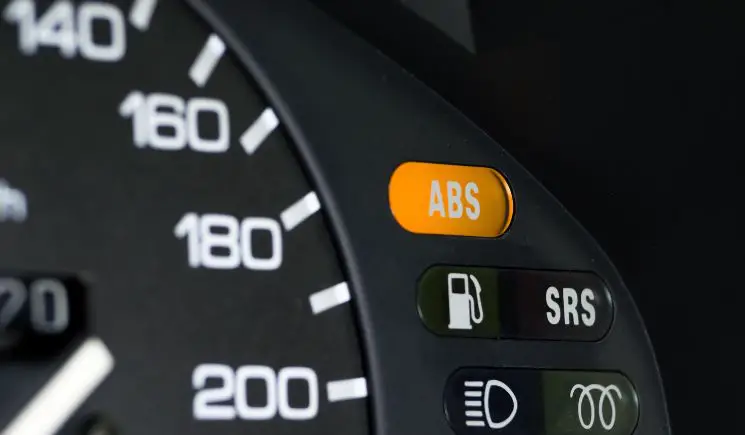Have you ever experienced a pulsating sensation while applying the brakes, yet no illuminated ABS (Anti-Lock Braking System) light indicates a fault? It’s a puzzling situation that leaves drivers wondering about the mysterious reasons behind this phenomenon.
This article dives into the perplexing world of brakes pulsing without an ABS light, exploring the potential causes and solutions to this enigma. From warped rotors and worn brake pads to hydraulic system issues, join us as we uncover the hidden culprits and shed light on the possible remedies.
Whether you’re a curious car owner or seeking troubleshooting guidance, get ready to unravel the mysteries of brakes pulsing without the presence of an ABS light.
Table of Contents
Several Potential Causes For Brakes Pulsing Without An ABS Light
Warped Brake Rotors
- Over time, heat and constant friction can cause the rotors to become uneven, resulting in pulsations when the brake pads make contact.
- Warped rotors can occur due to aggressive braking, improper torquing of wheel lug nuts, or prolonged exposure to high temperatures.
Uneven Brake Pad Wear
- Uneven wear can occur due to caliper malfunctions, improper pad installation, or sticking brake components.
- When the pads make irregular contact with the rotors, it causes pulsations and an inconsistent braking experience.
Worn Brake Pads
- When brake pads reach the end of their lifespan, they can become thin and unevenly worn.
- This uneven wear pattern can cause pulsations and vibrations during braking.
Contaminated Brake Fluid
- Over time, brake fluid can become mixed with moisture, debris, or air bubbles, compromising effectiveness.
- Contaminated brake fluid can lead to inconsistent brake pressure, resulting in pulsating brakes.
Hydraulic System Issues
- Problems within the hydraulic braking system, such as a malfunctioning master cylinder, brake lines, or calipers, can cause brakes to pulse.
- These issues can disrupt the even distribution of brake pressure, resulting in pulsations during braking.
Suspension or Wheel Bearing Problems
- Faulty suspension components or worn wheel bearings can cause vibrations that may mistake for pulsating brakes.
Tire Issues
- Unevenly worn or imbalanced tires can also contribute to a pulsating sensation during braking.
- Insufficient tire tread depth, tire misalignment, or tire imbalances can affect the smooth rotation of the wheels, resulting in a pulsating feeling when applying the brakes.
DIY Solutions To Address The “No ABS Light But Brakes Pulse” Issue
- Start by inspecting the brake system for any visible issues. Remove the wheels and visually examine the brake rotors, pads, and calipers. Look for signs of uneven wear, damage, or contaminants. Clean the rotors and brake pads using brake cleaner to remove any dirt, debris, or brake dust that may contribute to pulsations.
- If the brake rotors are under warping conditions, you may need to have them resurfaced or replaced. Resurfacing involves removing a thin layer of the rotor’s surface to create a smooth and even contact area.
- If the pads are significantly worn or show uneven wear, replace them with new ones. Ensure that you follow the manufacturer’s guidelines for proper pad installation and use the appropriate type of brake pads for your vehicle.
- Ensure all tires are perfect to the recommended pressure specified by the vehicle manufacturer. Use a device such as a tire pressure gauge to check and adjust the pressure as necessary.
- Consider having the wheels balanced at a professional tire shop if you suspect an imbalance. Additionally, make sure to check the tires for any signs of uneven wear and replace them if necessary.
FAQs About No ABS Light But Brakes Pulse
Q: Can I continue driving with pulsating brakes?
A: It is not recommended to continue driving with pulsating brakes. Pulsations can indicate underlying issues with the braking system, which may compromise effectiveness and lead to unsafe driving conditions.
Q: Will the ABS light eventually illuminate if there is an issue with the ABS?
A: While the ABS light functions to illuminate when there is a fault within the ABS, it is possible for the ABS light to fail to illuminate despite an issue.
Q: Are pulsating brakes always a sign of a severe problem?
A: Pulsating brakes can indicate underlying issues within the braking system, some of which may require immediate attention. While not all causes are severe, addressing the issue promptly is crucial to ensure safe driving conditions and prevent further damage to the braking components.

